It was described as the world’s “best last chance” to get runaway climate change under control.
But a year on from the COP26 UN climate talks in Glasgow, activists who staged a climate strike in the city on Friday October 28 say the 2021 event was a “failure”.
With rumours that PM Rishi Sunak might U-turn on his decision to snub the COP27 summit confirmed – and amid criticism King Charles was barred from attending – campaigners have criticised the UK Government’s ‘greenwashing’ and highlighted the ‘links between the climate crisis and the cost-of-living crisis’.
It comes as the UN’s environment agency warns there is “no credible pathway” in place to limit global warming to 1.5C, and that the failure to reduce carbon emissions means the only way to limit the worst impacts of the climate crisis is a “rapid transformation of societies”.
As COP27 gets underway in Sharm El Sheikh from November 6 to 18, however, is it true that nothing has been achieved?
Reflecting on COP26
One man who’s been reflecting on last year’s Glasgow summit and what needs to be done next is Perth-based Royal Scottish Geographical Society chief executive Mike Robinson.
Last week, the RSGS hosted a ‘COP26 – one year on’ event at Perth Concert Hall, in association with the Open University.
Speakers included Dr Leslie Mabon – lecturer in environmental systems from the Open University; Dr Viv Scott – team leader, UK Committee on Climate Change and Lotta Heikkonen – chief specialist with the Finnish Ministry of Agriculture and Forestry.
There were also a series of workshop discussions centred around issues of land, agriculture and the rural environment; buildings and cement; energy and heat and transport.
Climate summit ‘expectations’
Mr Robinson said much was expected of COP26 in Glasgow, and much has been written since about its success or otherwise.
Expectations are difficult to manage – a coming together of the world’s governments, in which everyone needs to agree, was never going to be radical, but it was a brief window when much of the world was not distracted by other global short term concerns, and the focus was clearly on climate action.
In the year since Glasgow, “distractions” have ranged from the war in Ukraine, to food and energy costs, to society emerging from a pandemic.
Mr Robinson says away from the negative headlines, COP26 did achieve a “wave of other lower level commitments”.
However, he remains disappointed that it didn’t result in anything more definitive.
“The UN have been quick to highlight its accomplishments, claiming progress in four main areas,” he says.
“The first was the global recognition that helping countries to adapt to the impacts of climate change, and to avoid pursuing high emissions economic growth models, is vital.
“Attached to this, there is enhanced agreement of the need for developed countries to pay to address direct climate damage which Scotland’s First Minister showed strong support for, despite reluctance from many countries in the west.
“There were also steps agreed in financing developing nations – though promises still fall well short of the targets agreed in Paris – in enhanced transparency to build international trust and to focus nations on improving their commitments.
“These are all welcome steps, but they are not headline accomplishments, and the world is still short of the commitments to keep temperatures below 2 C, let alone 1.5C, and the financing remains inadequate.”
World ‘far off track’
However, Mr Robinson adds: “There is still a long way to go.
“Antonio Guterres, The UN Climate Chief pointed out that despite the accomplishments in Glasgow, the world is still far off track to stabilizing global temperature rise at 1.5 degrees and urged further and immediate international collaboration to get the world back on track to achieving this goal.
“Perhaps we are expecting too much of an unwieldy, cumbersome pan-national diplomatic process.
“To only scrutinise what directly falls out of the conferences is also to miss its true impact.
“What COP26 did achieve beyond the disappointing headlines was a wave of other lower level commitments from ‘non-state actors’.
“Regional governments, coalitia, cities, multinationals and many organisations put forward their own commitments, in support of their own nation’s pledges.
“Thousands of businesses declared their own net-zero targets and whilst there is much scepticism about their ability or drive to fulfil these targets, there is a significant momentum for people beyond national governments to step up and do more, and this has to be welcome.”
Driving international momentum
Mr Robinson said one thing that the annual UN COP process does do, is that it continues to drive international momentum on climate action.
The time for #ClimateAction is now. We all have a role to play.#TogetherForImplementationhttps://t.co/XazYZQ3dyT pic.twitter.com/yUpn2vX2Dz
— COP27 (@COP27P) October 29, 2022
Every year the world’s governments meet and promise to cut emissions by ever-increasing amounts.
It is painfully slow at times, he says, but the sooner everyone recognises the inevitability of that momentum, the better.
“Climate change after all is not optional,” he says.
“One way or another we all have to wake up to its severity and do more to tackle it.
“So, whilst COP26 might be lacking concrete achievements, it has accelerated the momentum behind this issue.
“And whilst COP27 will be competing for headlines with energy costs, food price inflation, war in Ukraine and much besides, it will at the very least maintain some of that momentum.”
Scotland ‘leader in the UK’
Mr Robinson says that whilst we are distracted by short-term crises of various types, Scotland and the UK does have world-leading legislation.
“The UK is the leader within the G20, and Scotland is the leader in the UK,” he says.
“But the rest of the world is catching up.
“Indeed, since Glasgow’s COP, Finland can lay claim to have overtaken the UK with a new commitment of net zero by 2035, and net negative emissions by 2040.
“This is bold and world-leading legislation.
“Although we hear a lot about Scotland’s target of net zero by 2045, this has now been matched by Germany and Sweden.
“Even countries which have previously been reluctant laggards – or outright climate deniers – have brought forward legislation.
“The UK, with its target of net zero by 2050, has now been matched by the USA, Canada, Australia and New Zealand, and although some are again sceptical of their ability or commitment to deliver, these targets are a huge step forward and were inconceivable only a handful of years ago.
“Even Russia, China and Saudi Arabia have declared net zero by 2060, and India by 2070.
“The momentum is undoubtedly there and despite many nations being slow to deliver against these targets, and even though the current commitments don’t yet go far enough to avoid runaway climate change, they are ratcheting up year on year on year.
“The direction of travel could not be clearer.”
Wave of change
Mr Robinson says the opportunity for Scotland and the UK – so long as credibility is retained by delivering against targets – is being at the front of a wave of change that is sweeping the world.
There are potential stronger alliances with those nations which are leading that change – like Finland, Sweden, Denmark, Norway, Costa Rica, Morocco, Germany and the EU.
But perhaps even more starkly, there is a “huge opportunity” to help Britain’s natural allies in North America and Australasia, who are late to the party, but now determined to catch up, and looking for examples to follow.
“Domestically we need to help drive and continue any positive momentum, and spotlight the good things that are happening,” he says.
“Whilst frustration and fear drive scepticism about our ability to prevent the worst of climate change, it is vital that we encourage, guide, empower and fuel the people, organisations and projects which are making a difference, or trying to.”
It was with this in mind that RSGS ran the Perth conference with the Open University to do exactly that ahead of COP27.
The purpose of the event was to understand what signs of positive change have begun to take root since COP26, nationally and internationally.
What projects and activities have begun which will start to bring about this necessary transition?
And what else needs to see happen, what ideas are there out there in the ether, which will help build the low carbon future that’s needed?
“The UN’s climate COP26 didn’t achieve much,” he adds.
“But perhaps that is not surprising – governments are not driven entirely by science or morality, but by ideology, ego and popularity.
“Perhaps the biggest lesson of COP26 is how essential it is that our institutions, businesses and ‘non-state actors’ really begin to step up and make it happen.
“Although we still have a lot to do, Scotland already has a global reputation for its leadership on this issue, and influence with many of the nations which most need to accelerate their responses.
“There is not just moral authority in leadership, there is also opportunity.
“And good leadership is contagious.”
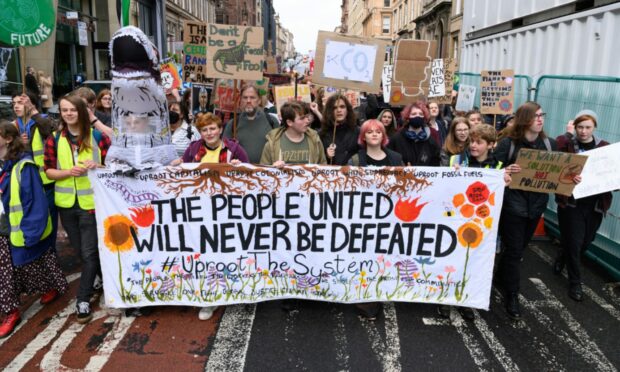
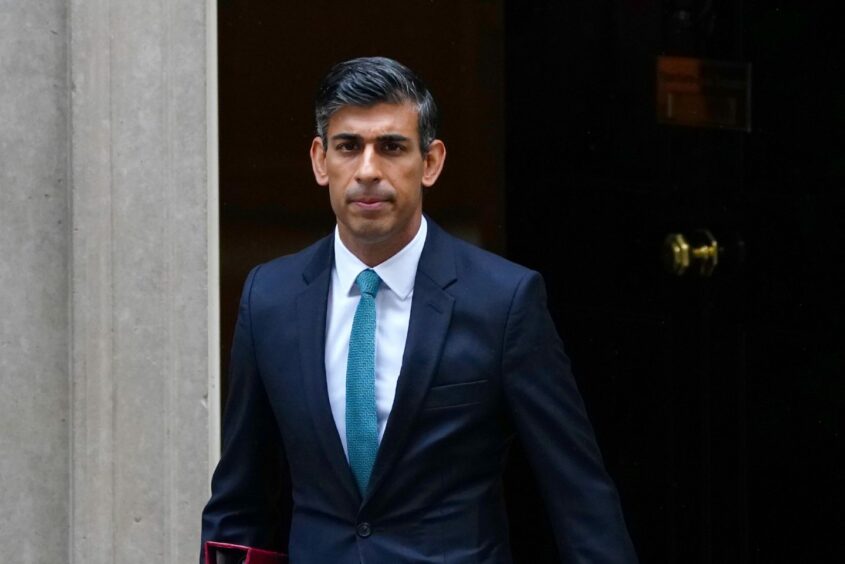

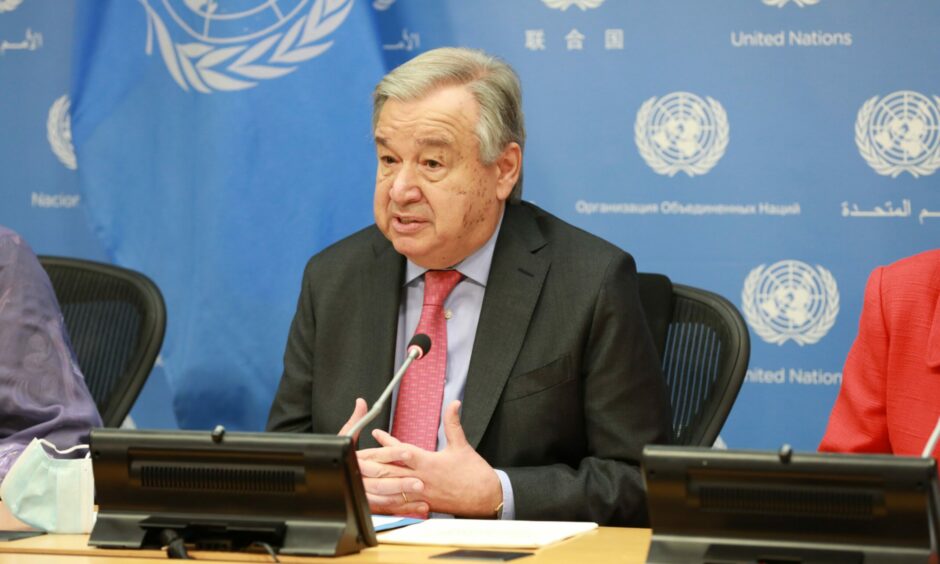
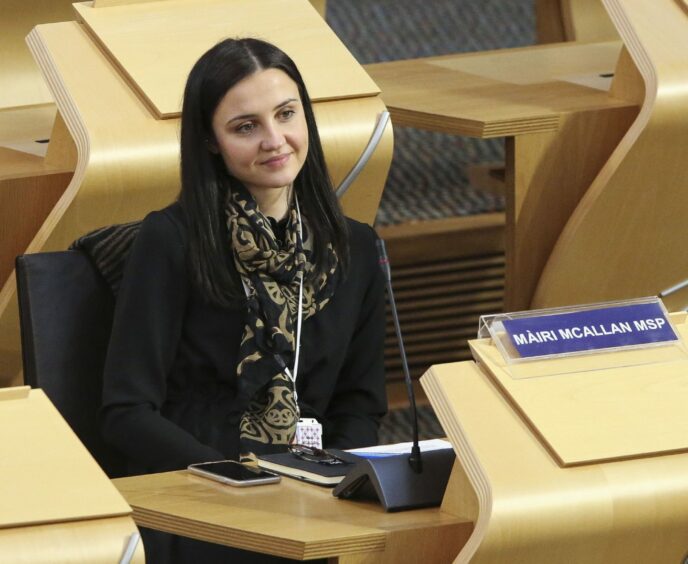
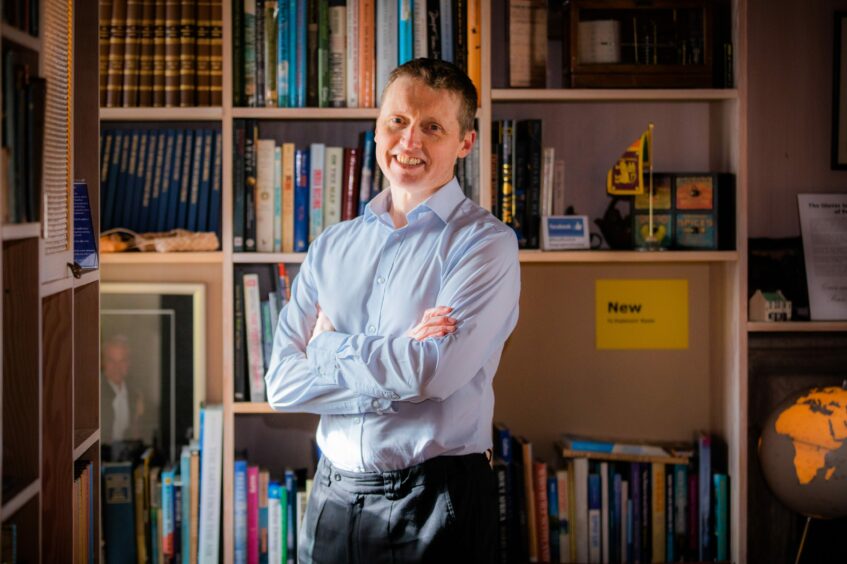










Conversation